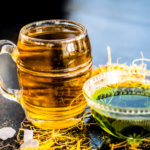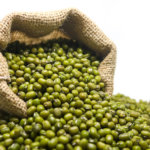
Dill is a favorite herb of chefs all around the world, where they use it to flavor fresh meals and preserves. When you bite into a crisp dill pickle, it’s the dill that provides the zesty, tangy flavor. Both the leaves of the herb and its seeds have culinary and medicinal uses – where homeopaths and natural healers rely on the polyphenols and terpenes in dill to cure a wide range of health disorders, including digestive issues, and inflammatory diseases.
Manufacturers press dill seeds into the oil, which has tremendous therapeutic and medicinal value when used correctly. The flavonoids, monoterpenes, and minerals contained in the essential oil have potent healing properties.
Gardeners can plant dill in the summer and expect it to propagate readily throughout the season. The herb struggles in colder climates, and it’s best to grow it in a greenhouse if you live in the Northern States of the U.S.
Here are eight things to know about dill, and how the herb can benefit your health.
1. Aids Digestion
When we eat our meals, the type of nutrients we feed our body create different responses in the gastrointestinal system When we consume large quantities of refined carbohydrates, it results in an inflammatory response in the gut.
The trillions of biomes residing in our digestive system start to experience an imbalance of harmful bacteria, leading to the development of gastric issues such as gas and bloating.
Traditional medicinal therapies include dill for its ability to soothe digestive issues such as flatulence, stomach ache, gas, and bloating. The polyphenol antioxidants found in dill have an anti-inflammatory effect that fights inflammation of the intestinal wall, reducing the symptoms associated with gastrointestinal inflammation.
Add dill to your meals or consume the essential oil extract to assist in aiding digestion. The polyphenols in dill activate the secretion of digestive juices and bile while stimulating the peristaltic motion of the gut. This effect relieves constipation and improved bowel movements.



